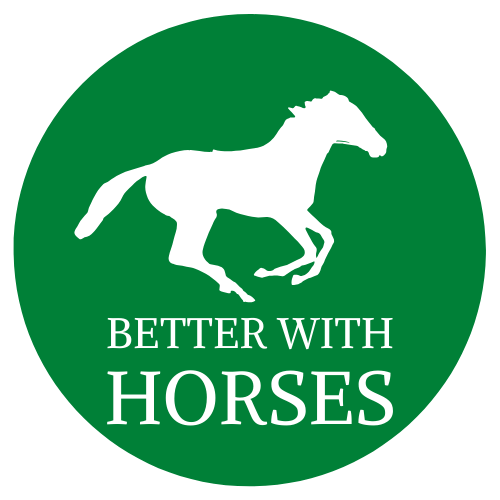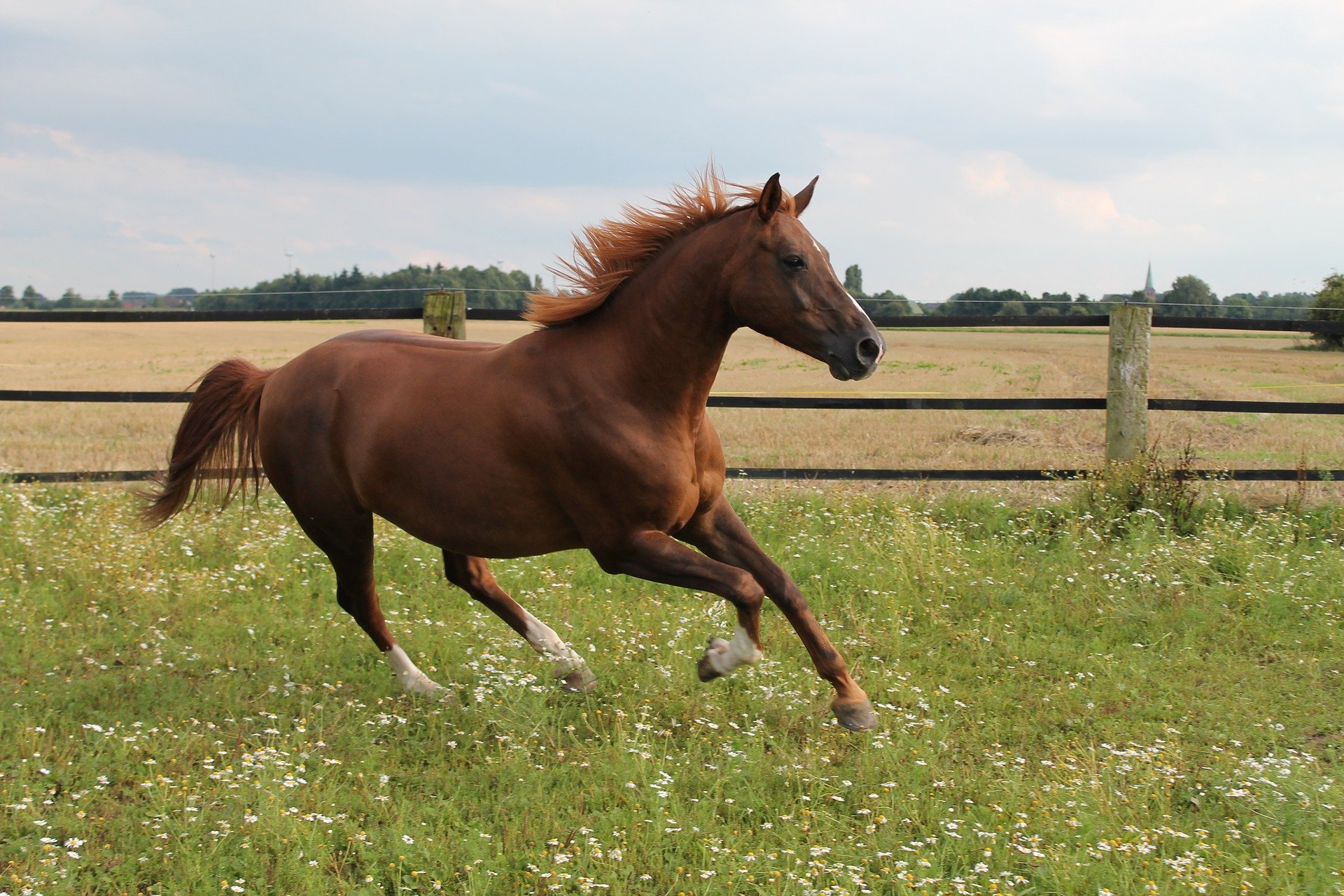
What makes horses skittish, spooky, nervous, (pick an adjective)?
I mean, seriously, why are horses so skittish? Why do horses spook so easily?
Why do leaves rustling or a tractor or even just a bucket in a different place than yesterday make a horse turn into a giraffe with her head way up or prance around on his tiptoes like a hot air balloon at the end of the lead rope?
I’m glad you asked.
When I first got into horses, I was lucky enough to be introduced to Parelli Natural Horsemanship by a colleague, who soon became a lifelong friend. Thanks to horses.
But I digress.
The first time I saw Pat Parelli in person he opened his presentation (after a dazzling display of his centaur-like skills on the back of his horse) with the four-word statement: horses are prey animals.
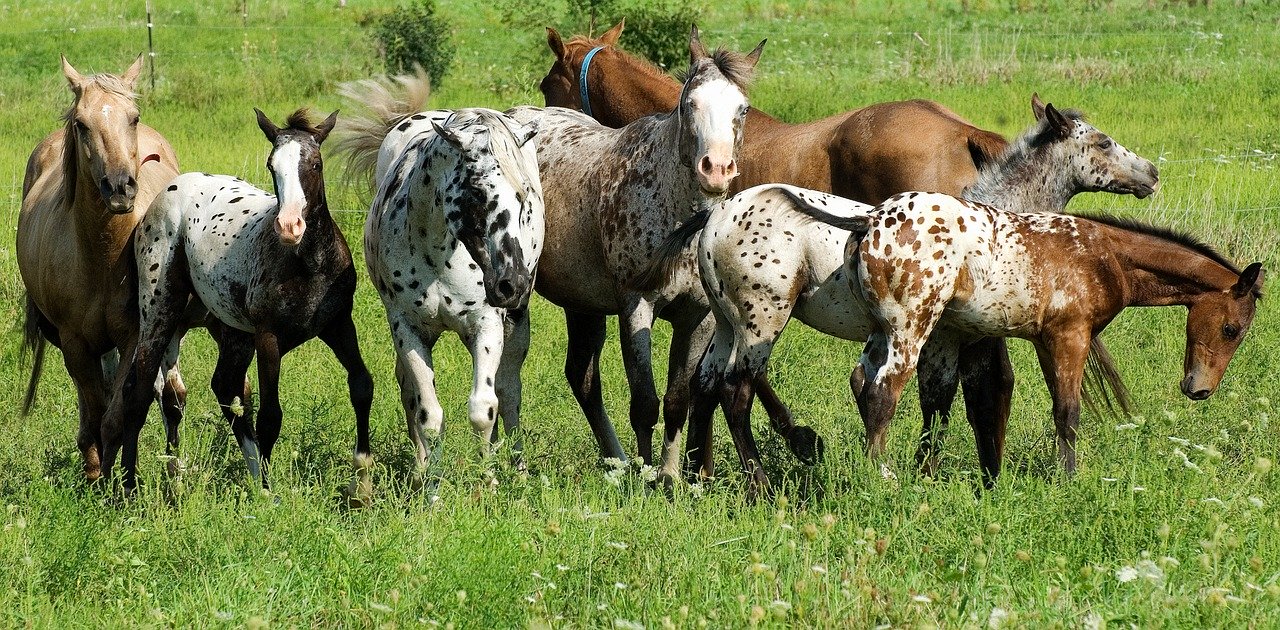
Horses. Are. Prey. Animals.
Of course! Why didn’t I think of that? This was a mind-blowing revelation to me in my early days of getting to know horses.
Horses are skittish because they want to run away first and ask questions later.
And, did you ever notice that, like most prey animals, a horse’s eyes are on the sides of their head so that they can see almost completely around themselves (except for over the very tip of their nose and behind the top of their tail)?
I would be skittish, too, if I could see everything around me all the time!
Horses are skittish because they have to live constantly on the alert for predators.
Yes, horses are skittish even when they are safely being cared for, protected, loved, and adored by a well-meaning human, who lives blissfully unaware at the top of the food chain.
What's the point? Because they are prey animals, when horses are afraid, they think they are going to die.
When horses spook and dance around at the end of a lead rope like they're on hot coals, they aren’t just being naughty or stubborn. They’re scared to death.
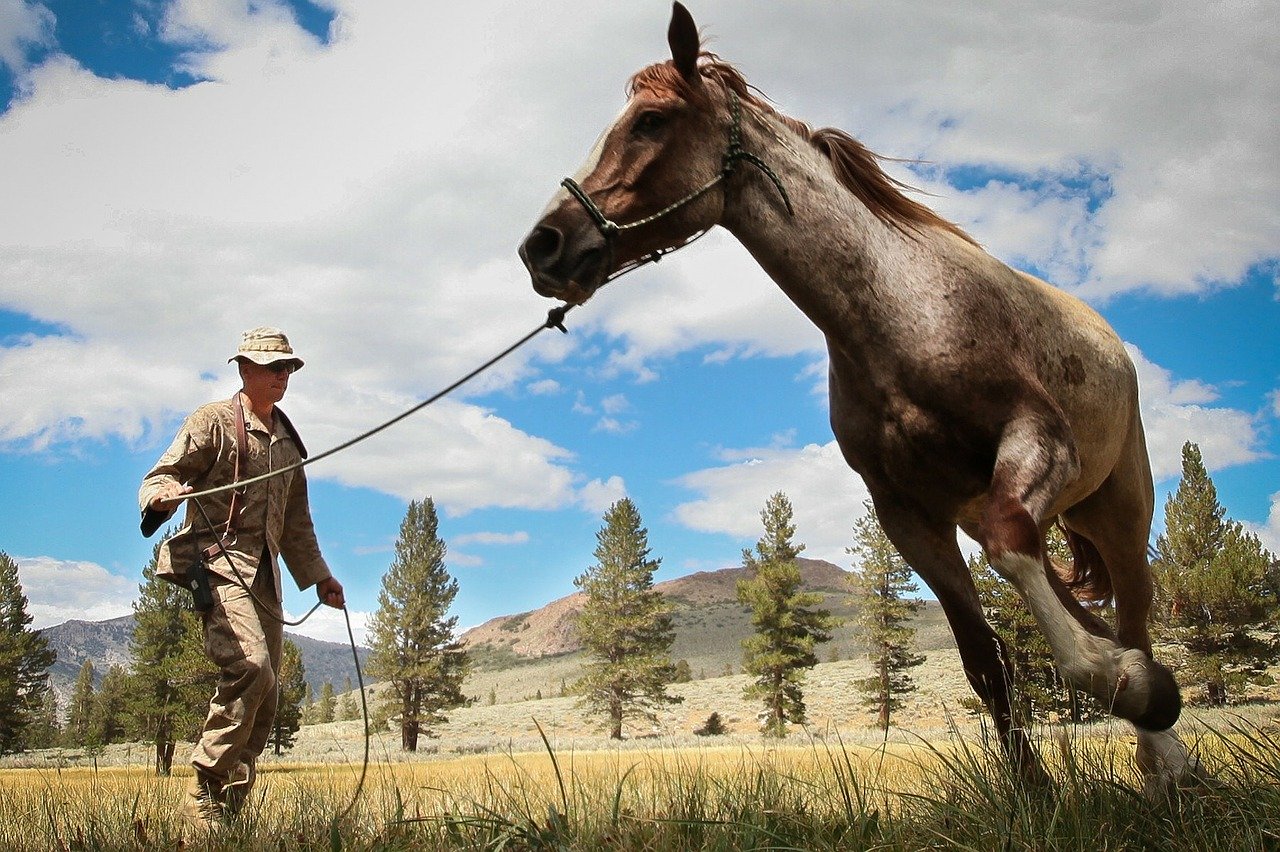
Horses Are Skittish Because They Are Looking for a Leader
Why? Horses rely on instincts that have kept them alive in the wild for thousands of years.
First and foremost, by nature, they are looking for a leader.
That's where you come in.
The very instincts, like following a leader, that horses rely on to keep them safe are what make horses such amazing, intelligent, trainable, and willing partners.
Why is that? Because horses rely on the herd for survival. Not only is the individual horse on the alert, but so is every other member of the herd.
When we interact one-on-one with a horse, we're forming a herd of two. Either the human is the leader, or the horse has no choice but to assume the leadership role. Which option do you think works out best?
In order to determine who is the leader, horses are far more advanced than us humans in reading body language. Horses tune-in to each other's smallest movements that might indicate it's time to run.
That’s why horses usually know our intentions before we even know them ourselves.
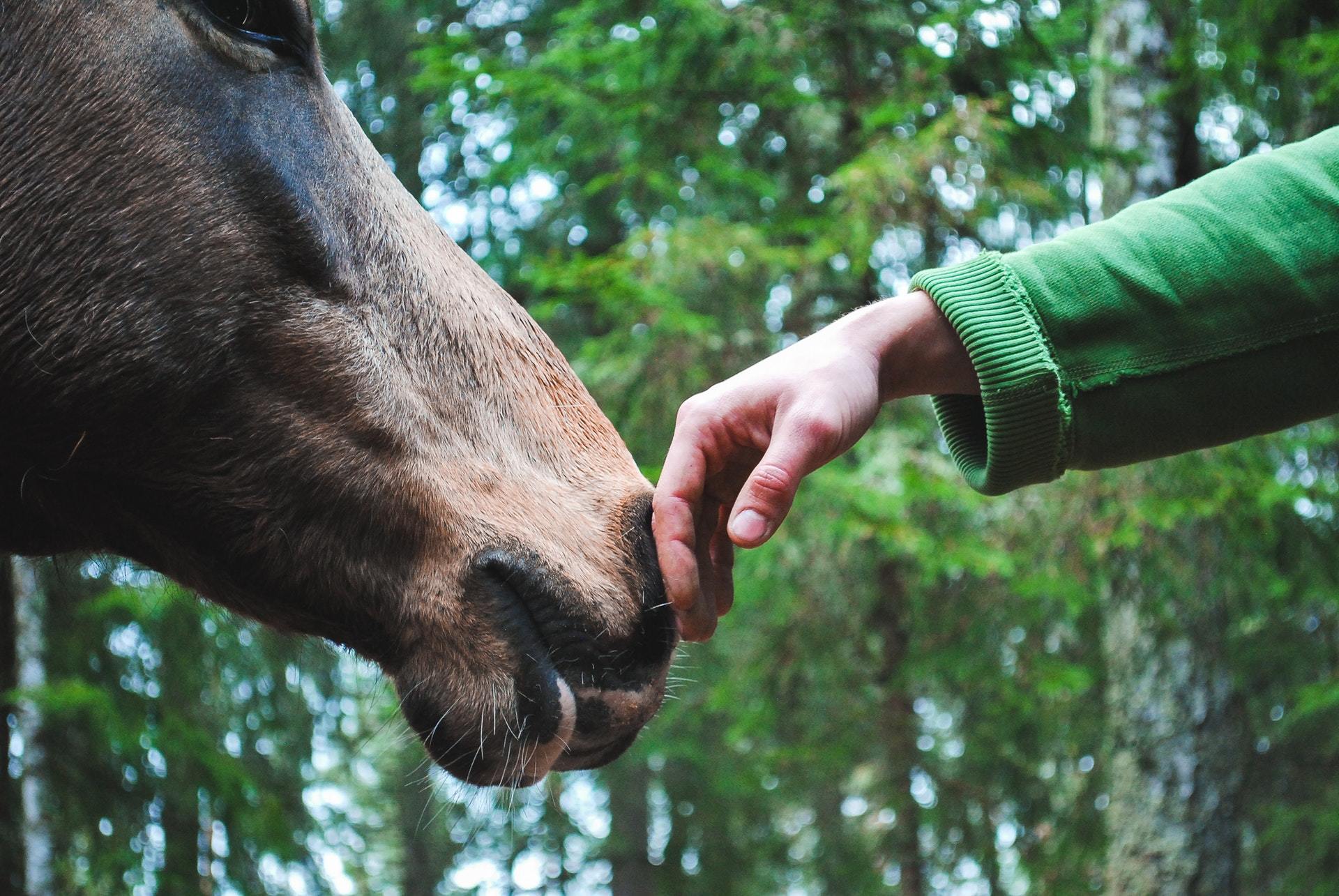
What Skittish Horses Can Show Us
Self-Awareness.
Because horses are skittish and on the alert, they can teach us so much about ourselves, and what makes us tick. If we pay attention to how the horse's behavior mirrors our feelings.Leadership Skills.
When we understand that horses act skittish and spooky because they're afraid of being eaten, we can become the leader in a herd of two by calmly leading them in ways they can understand.Clear Communication.
Each time I enter the field with a horse, my intention is to do everything I can to deepen our bond to the point that we will form a herd of two with me as the calm, confident leader.
That’s when the magic happens. That’s when the horse-human bond becomes so strong that your thoughts seem to direct every step of the horse.
What are your goals with horses? What is your next step?
